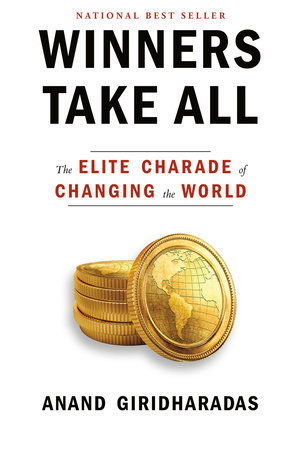THE ELITE CHARADE OF CHANGING THE WORLD
Anand Ghiridhas has done a great job with his new book. He has set up the context for understanding the duality government elites. I've picked only several key statements. The whole book is well written and gives a lot of examples (US-based of course).
Many millions of Americans, on the left and right, feel one thing in common: that the game is rigged against people like them. Perhaps this is why we hear constant condemnation of “the system,” for it is the system that people expect to turn fortuitous developments into societal progress. Instead, the system—in America and around the world—has been organized to siphon the gains from innovation upward, such that the fortunes of the world’s billionaires now grow at more than double the pace of everyone else’s, and the top 10 percent of humanity have come to hold 90 percent of the planet’s wealth.
Some elites faced with this kind of gathering anger have hidden behind walls and gates and on landed estates, emerging only to try to seize even greater political power to protect themselves against the mob. But in recent years a great many fortunate people have also tried something else, something both laudable and self-serving: They have tried to help by taking ownership of the problem.
What is at stake is whether the reform of our common life is led by governments elected by and accountable to the people, or rather by wealthy elites claiming to know our best interests. We must decide whether, in the name of ascendant values such as efficiency and scale, we are willing to allow democratic purpose to be usurped by private actors who often genuinely aspire to improve things but, first things first, seek to protect themselves. Yes, government is dysfunctional at present. But that is all the more reason to treat its repair as our foremost national priority.


.jpg)